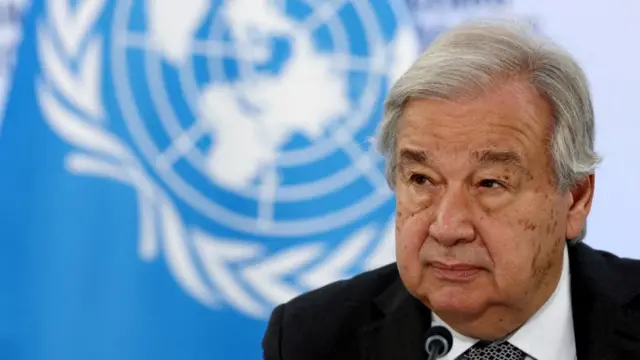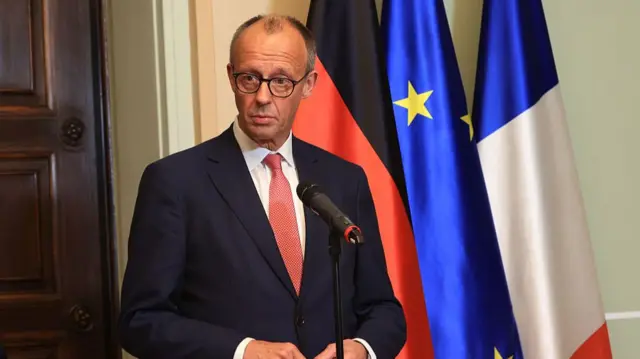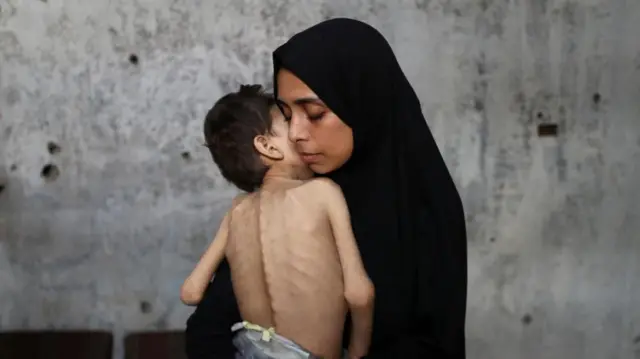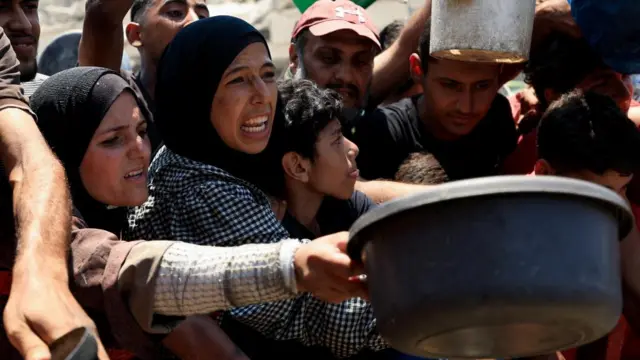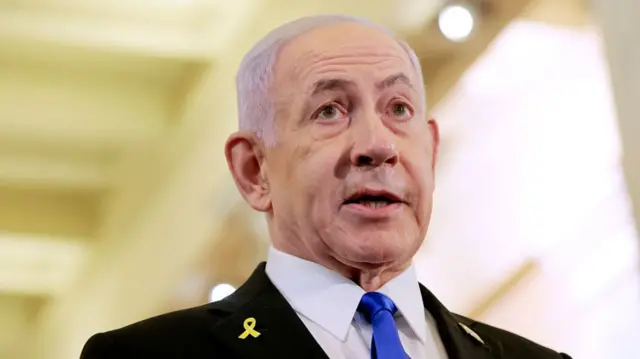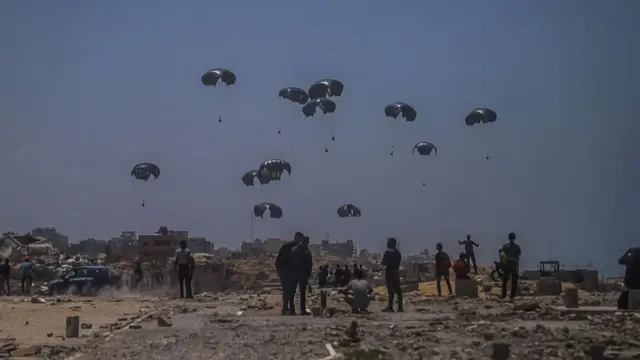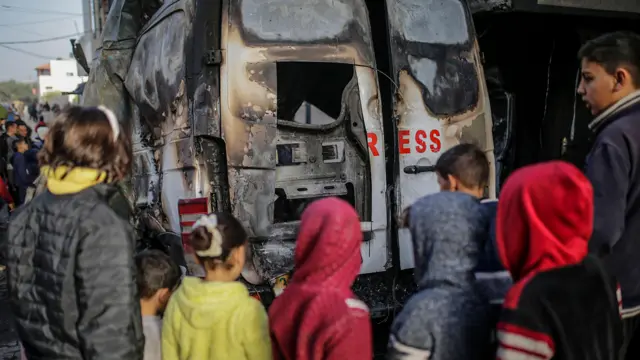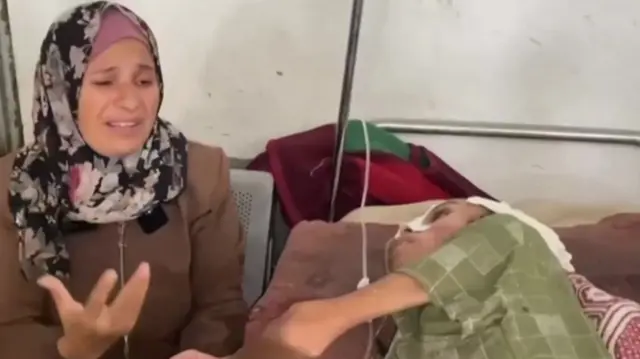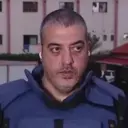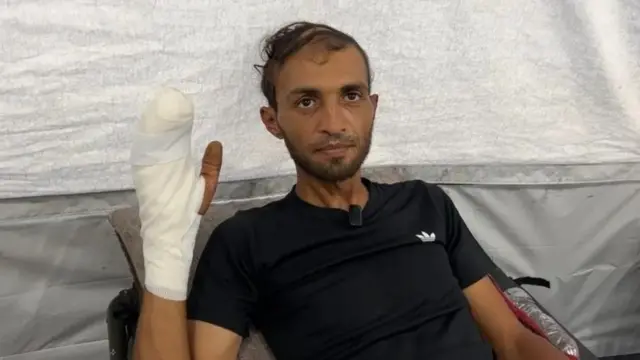UN food agency says almost a third of Gazans 'not eating for days' - reportpublished at 16:36 BST 25 July
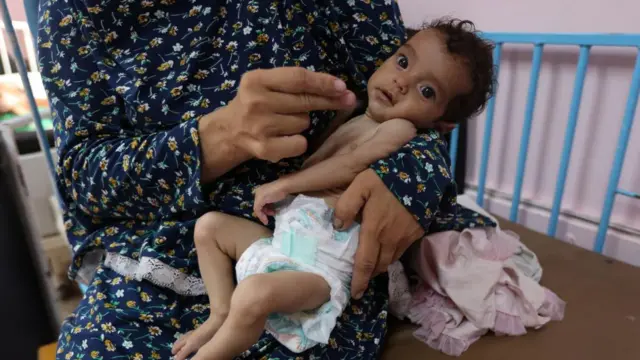 Image source, Reuters
Image source, ReutersRama Abu Aya, aged 5 months, is malnourished, according to medics at the Nasser Hospital in Khan Younis
Almost a third of Gazans are "not eating for days", the United Nations food aid agency tells the AFP news agency.
The World Food Programme (WFP) adds the crisis has reached "new and astonishing levels of desperation".
This comes as the UN's Palestinian refugee agency (Unwra) says acute malnutrition in children under the age of five has "more than doubled since" March. The agency warns over half of its essential medicines are now "out of stock".
In a previous statement, the WFP warned 470,000 people in Gaza are expected to face catastrophic hunger between May and September this year, while the entire population faces "acute levels of food insecurity".
The WFP also said 71,000 children and more than 17,000 mothers will need urgent treatment for acute malnutrition.
